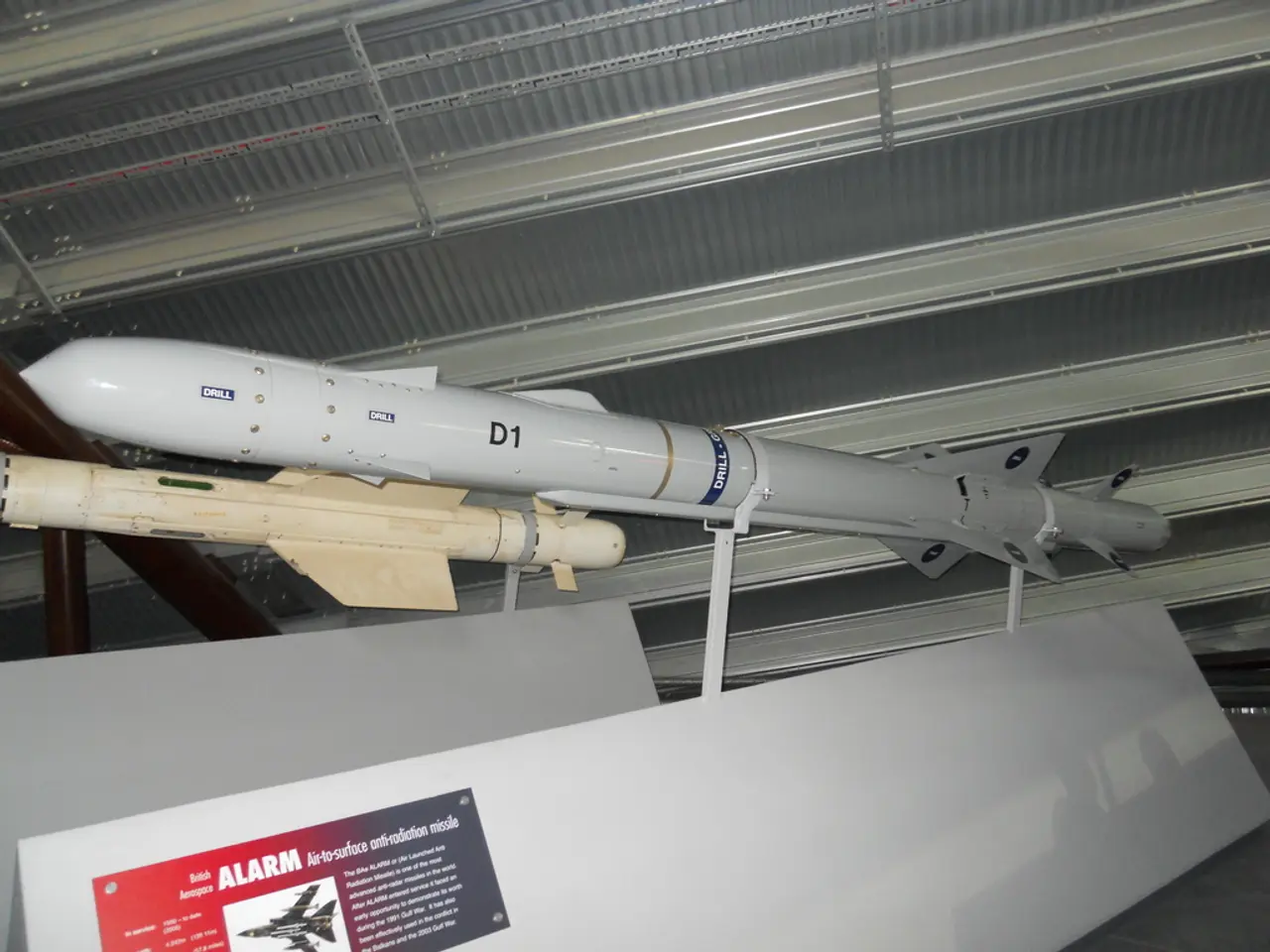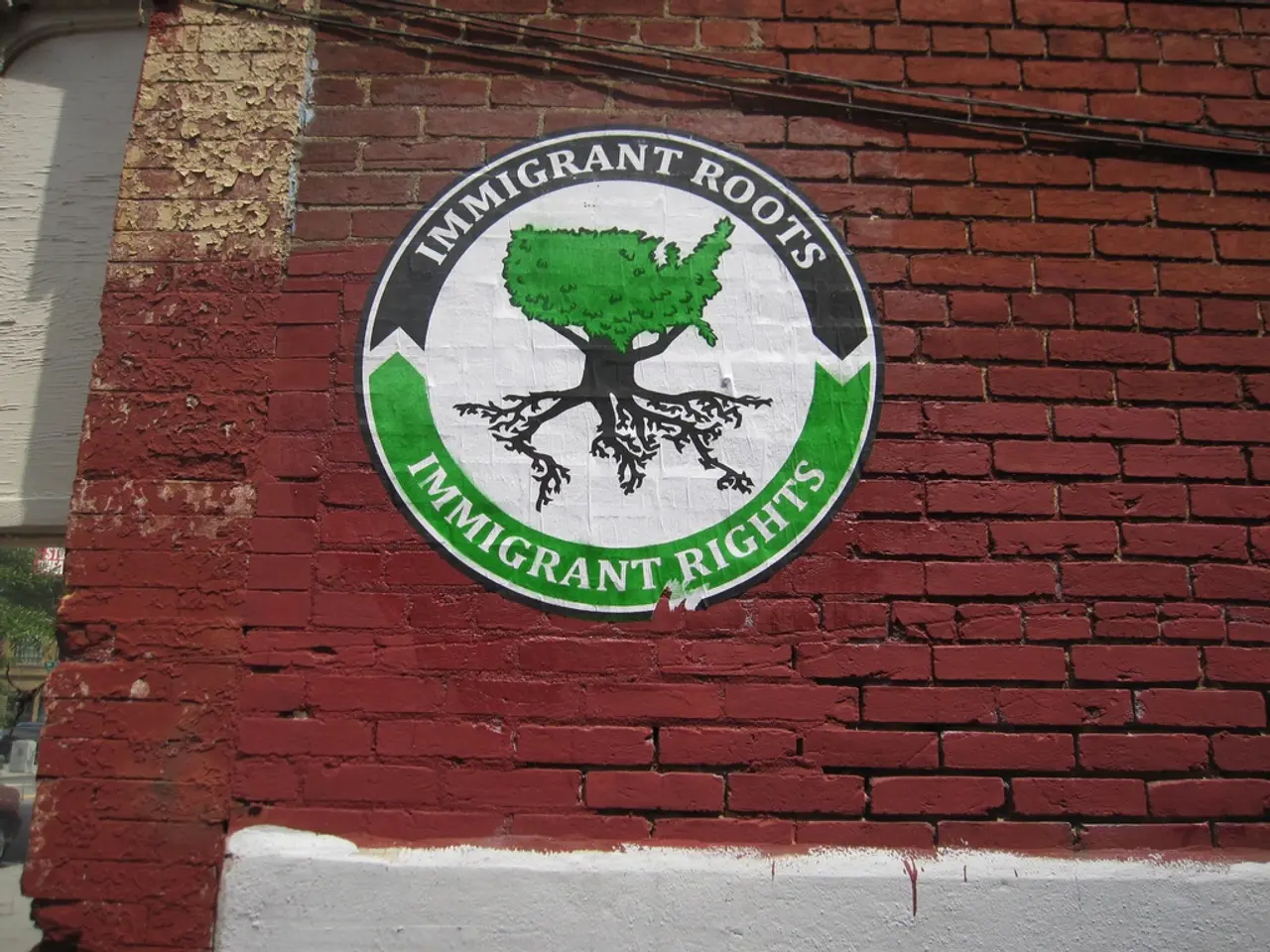Dismantling of the Anglo-Saxon Legacy?
In a significant development, a memo suggests that Russia and China are on the brink of a long-range strategic plan, a culmination of their efforts that could result in a moment of overwhelming strategic superiority, often referred to as the "one clenched fist" by KGB defector Anatoliy Golitsyn during the plan's final phase.
This strategic partnership between the Communist Parties of China and Russia is marked by a stance of strategic competition and opposition to perceived U.S. hegemony. While both parties emphasize deepening their military-technical cooperation and coordinated political opposition to U.S. defense initiatives, they signal a preference to avoid direct conflict through controlled diplomatic engagement.
The Chinese Communist Party (CCP) views the U.S. domestic turmoil and political system challenges as signs of underlying weaknesses in liberal democracy, contrasting it with China's centralized model, which they see as more stable and effective. The CCP's official position, as expressed by Foreign Minister Wang Yi, calls for mutual respect, peaceful coexistence, and win-win cooperation, aiming to avoid direct confrontation and maintain stable bilateral relations despite strategic rivalry. Simultaneously, the CCP leadership supports increasing military-technical collaboration with Russia to bolster their strategic position against U.S. military alliances and initiatives.
The Communist Party of the Russian Federation, while not a formal military alliance partner of China, engages deeply with China in military-technical cooperation, viewing such cooperation as essential to counterbalance U.S. military capabilities and influence. Putin and Xi’s joint statements underscore a shared vision of opposing what they perceive as U.S. attempts to destabilize global strategic stability through aggressive defense initiatives, indicating a coordinated approach to deterrence without formal alliance commitments.
The potential consequences for the global balance of power are significant: as China and Russia strengthen their political coordination and military cooperation, the United States faces a consolidated Sino-Russian strategic partnership that challenges its traditional dominance in global security affairs. This evolving dynamic risks intensifying great-power competition and complicating global governance structures, making diplomatic engagement and crisis management more critical to prevent escalation. However, both sides appear cautious to avoid outright conflict, emphasizing communication channels and stable relations even amidst rivalry.
Meanwhile, Australia's Home Affairs chief, Mike Pezzullo, issued an alarming warning to his staff to "get ready for war," as the Australian government has approved increased defense spending in response to Chinese belligerence. The memo signifies an unprecedented level of alarm from America's military leaders, who now recognize that Russia and China have "weaponized information."
The memo also indicates that China and Russia are attempting to reshape the world in their image, proliferate authoritarianism, and advance their ambitions, which are provocative, dangerous, and destabilizing. The U.S. State Department says that Russia and China have used the coronavirus pandemic to push anti-American conspiracy theories, including that the virus was an American-made bioweapon and that U.S. troops were responsible for its rapid spread.
As the world grapples with these developments, nine regional U.S. military commanders implored spy agencies to provide more evidence for public consumption, aiming to alert the world to Russia and China's "pernicious conduct." The memo requests help to better enable U.S., allies, and partners to win without fighting, to fight in "gray zones", and to supply ammunition in the ongoing war of narratives.
In the face of these challenges, it is crucial for nations to remain vigilant and proactive in maintaining global peace and stability. The evolving Sino-Russian partnership represents a central factor shaping future shifts in the global balance of power.
- This long-range strategic plan between Russia and China, often referred to as the "one clenched fist," encourages a stance of strategic competition and opposition to perceived U.S. hegemony.
- The Chinese Communist Party (CCP) views American domestic turmoil as a sign of underlying weaknesses in liberal democracy, contrasting it with China's centralized model.
- The CCP's official position aims for mutual respect, peaceful coexistence, and win-win cooperation, while simultaneously increasing military-technical collaboration with Russia.
- Putin and Xi’s joint statements reflect a shared vision of opposing what they perceive as U.S. attempts to destabilize global strategic stability.
- As China and Russia strengthen their political coordination and military cooperation, the United States faces a consolidated Sino-Russian strategic partnership that challenges its traditional dominance in global security affairs.
- The memo released in Australia warns its staff to "get ready for war," as the government has approved increased defense spending in response to Chinese belligerence.
- The memo also signals Russia and China's efforts to weaponize information, reshape the world in their image, proliferate authoritarianism, and advance their ambitions.
- Nine regional U.S. military commanders have implored spy agencies to provide more evidence for public consumption, aiming to alert the world to Russia and China's "pernicious conduct."
- In the face of these challenges, it is essential for nations to remain vigilant and proactive in maintaining global peace and stability during these war-and-conflicts-related events in general-news.






